‘Can America give me back my Malika’: Families of victims of the US drone strike in Kabul speak of their grief
The US maintain that at least one of those killed in the drone strike was an IS ‘facilitator’ but the families protest there is no evidence to support this, writes Charlene Rodrigues

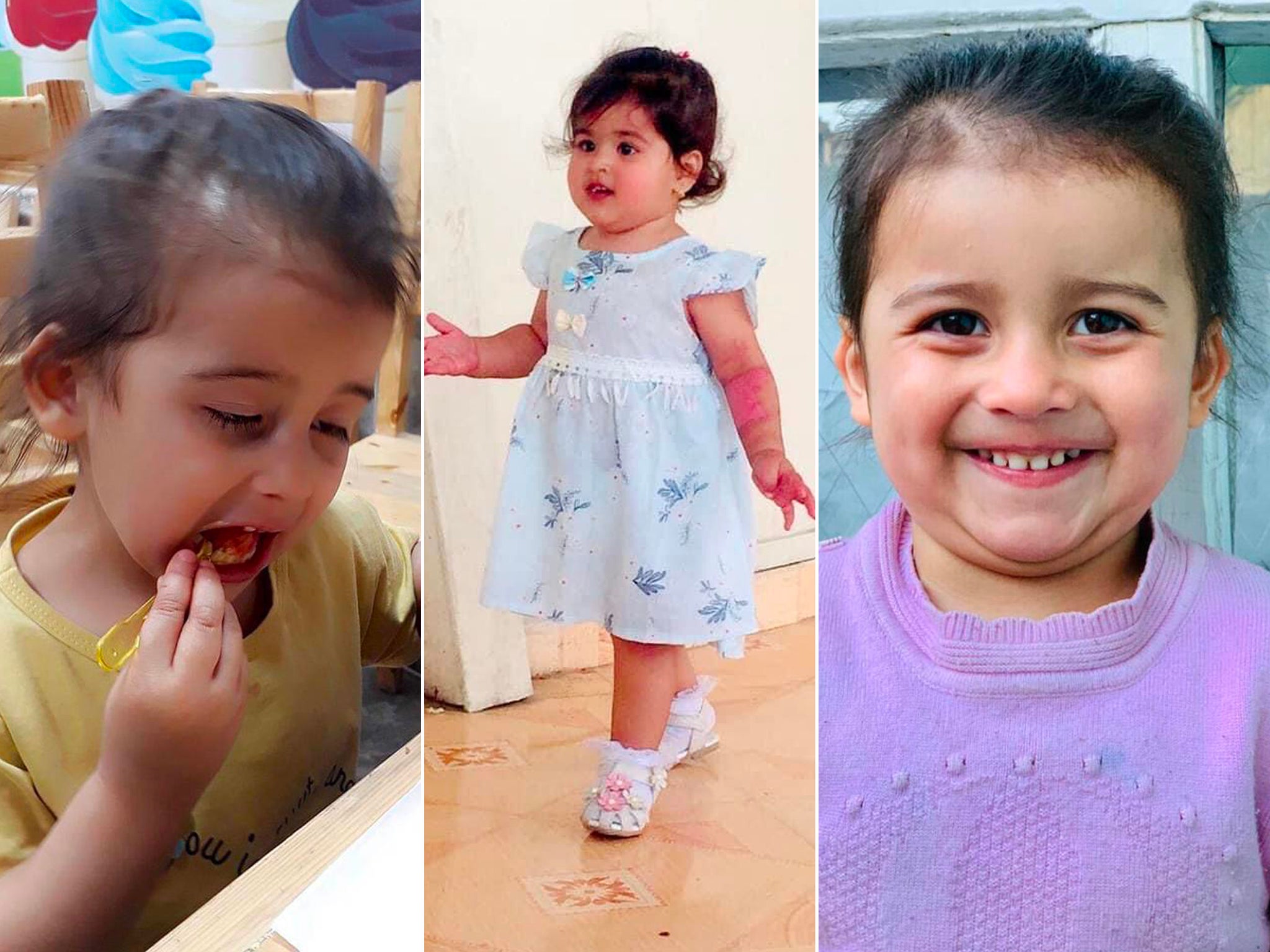
Your support helps us to tell the story
From reproductive rights to climate change to Big Tech, The Independent is on the ground when the story is developing. Whether it's investigating the financials of Elon Musk's pro-Trump PAC or producing our latest documentary, 'The A Word', which shines a light on the American women fighting for reproductive rights, we know how important it is to parse out the facts from the messaging.
At such a critical moment in US history, we need reporters on the ground. Your donation allows us to keep sending journalists to speak to both sides of the story.
The Independent is trusted by Americans across the entire political spectrum. And unlike many other quality news outlets, we choose not to lock Americans out of our reporting and analysis with paywalls. We believe quality journalism should be available to everyone, paid for by those who can afford it.
Your support makes all the difference.Emal Ahmadi hasn’t slept since Sunday.
Unable to walk or eat, he weeps uncontrollably. His toddler was killed after a US drone incinerated a car inside a residential compound in a working-class neighbourhood Khwaja Burgh, on the outskirts of Kabul.
Malika, meaning ‘queen’ in Arabic, was his queen. Distraught, he asked: “Can America give me back my Malika?” in a phone call with The Independent.
For the Ahmadis, the Sunday afternoon was like any other. Cousins, friends and families of different age groups were mingling in the family courtyard, playing pranks and watching videos.
The eldest, Zemari, 40, had just returned from work after dropping off his colleagues. He was employed as an engineer at the US based nonprofit NEI foundation. His oldest son Zameer, 20, was keen to park his Toyota Corolla in the driveway, so he obliged. Some cousins lined up to cheer them at the building’s entrance.
It was 5pm Kabul time when the missile hit. It instantly killed Zemari and nine other family members. His three sons Zameer, 20, Faisal and Farzad, 10, died.
Zemari’s siblings Emal and Ramal Ahmadi and their wives survived the attack - but their children, Armin,4, Benjamin, 3, Ayat, 2, and Malika, 3 were killed.
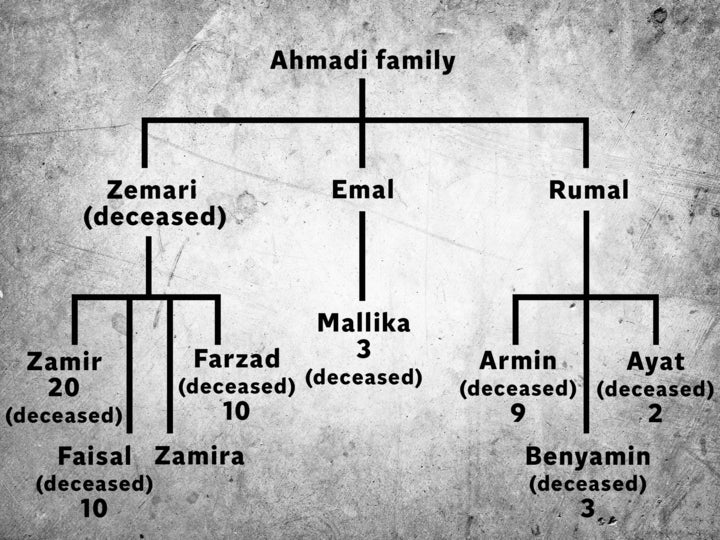
After the incident, everything was a blur, surviving family members said, adding that they had no time to flee.
In video footage, seen by The Independent, neighbours are seen frantically running just metres away from the raging flames, with extinguishers and buckets filled with water trying to douse the car’s flames.
Senior U.S. military officials said the drone strike hit an Islamic State target and weakened the extremists’ ability to further disrupt the final phase of the US withdrawal and evacuation of thousands of people from Afghanistan.
Army Gen. Mark Milley, chairman of the Joint Chiefs of Staff, said on Wednesday that at least one of those killed in the drone strike was an Islamic State "facilitator."
The Ahmadi family has been outraged by such remarks.
“There were no rockets or suicide bombers,’ said Emal.
"If the car was filled with explosives like the Americans say, why didn’t these cylinders explode," he asked.
He also pointed to a shoddily constructed brick wall near the gutted car. "How could the wall still be standing if this car had been full of explosives?"
The Ahmadis and links to the US.
Members of the Ahmadi family, from the historic wine-making Kapisa province in northeastern Afghanistan, worked for the US allied firms for more than a decade.
As seen by The Independent, references for visas and P2 referrals from their employers and supervisors, past and present, show that they were facing threats from the Taliban and were in danger.
Describing him as a “humble and compassionate employee”, NEI president and CEO Steven Kwon said he was shocked and devastated by the passing of his colleague.
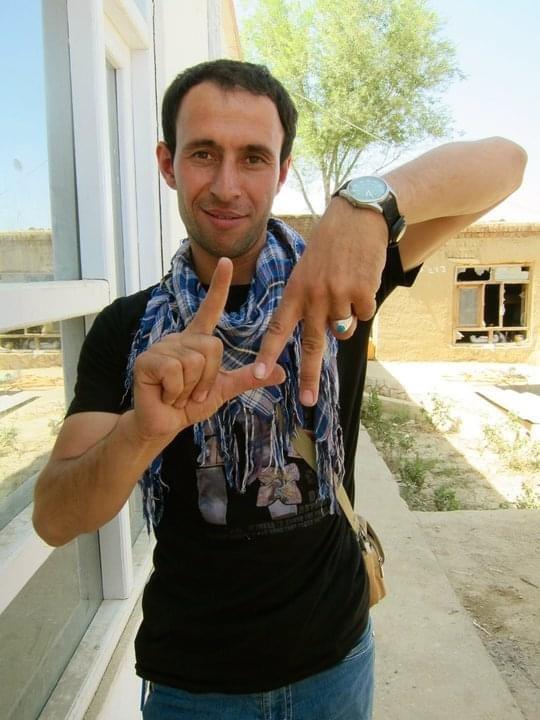
He said that Mr Zemari was well respected by colleagues internationally and was a strong advocate of women’s rights.
Mr Zemari had dropped off his colleagues and headed home to an evening meal with his family - a drive he routinely did for the past eight months.
After the Taliban took control of the capital, Kwon said Mr Zemari’s fears for his family’s security grew. In documents viewed by The Independent, Kwon had started processing Zemari’s P2 papers for his family of six.
We are asking the international community to know that we are not terrorists - that is all
P2 is used for immediate evacuation, while Special Immigration Visa is slower and provides financial support for resettlement.
Mr Kwon said that in the sixteen years that he had known and worked with Mr Zemari, he had never demonstrated any anti-US feelings or shown any passion for politics.
Mr Emal (Mallika’s father) worked with the U.S. based private military contractor DynCorp (2013- 2014).
He was in a nearby bazaar when the missile struck. Mallika’s charred body was strewn among the mangled body parts and broken metal and was only discovered the following day. The bodies were transported to Wazir Akbar Khan governmental hospital.
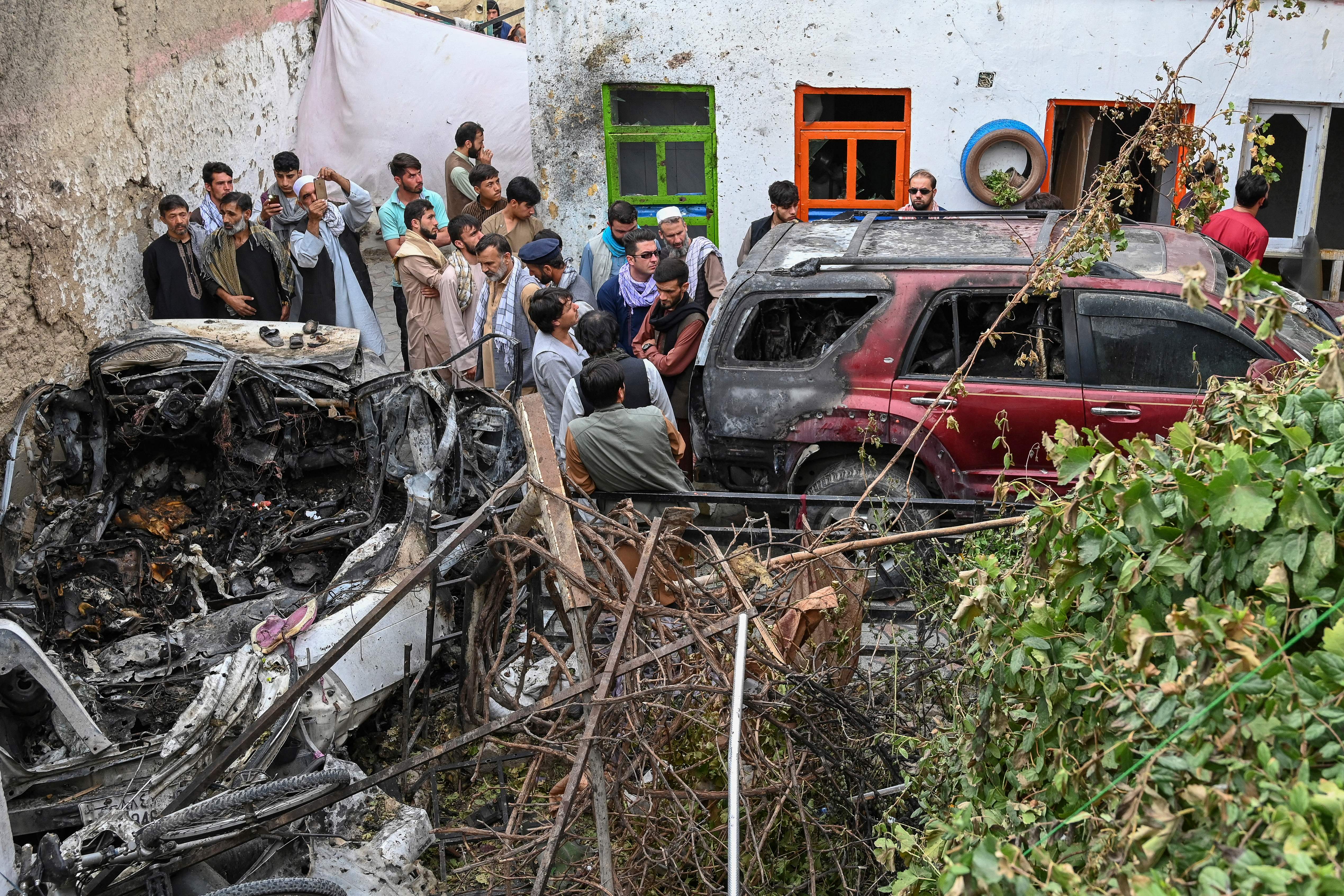
Zemari’s daughter was due to marry her fiancé Ahmad Nasser, 30, who worked as a guard with the US Armed forces in Afghanistan but was more recently employed by the Afghan National Army. He died the day before his wedding.
A fortnight ago, the US forces wrote a recommendation letter asking the authorities to approve his Special Immigration Visa. The couple were due to travel to the US after their wedding.
The letter, signed by Timothy Williams, his supervisor, and viewed by The Independent, described Nasser’s services as “superb.” Despite the threats “his dedicated service has not wavered,” it read.
“The grave danger that Nasser and his family faced was directly linked to his commitment to American and NATO forces,” Williams wrote.
Jamshid Yousufi, was visiting his Ahmadi cousins with his two-year-old daughter Sumaya, who was also killed. “She was a genius,” said her uncle, Ramin Yousufi. adding, “She loved bicycles.”
Mr Ramin is determined to explore every possible avenue to make his voice heard. ”They should know we are not IS-K members,” he said.
The United States has carried out at least two drone strikes against the group since the IS-K attack on Kabul airport. Biden said his administration will continue to retaliate with its “over the horizon” counter-terrorism capability.
Are the US drone strikes lawful ?
“Over the horizon” is simply a new term coined for an old programme, Jennifer Gibson Reprieve’s project lead for extrajudicial killings said.
“It is the same US drone programme that has been run in secret and without accountability in multiple countries for over a decade now.”
This incident is emblematic of what has been happening in Afghanistan, Yemen, Pakistan and Somalia, for the last decade, said Ms Gibson.
Drones may be precise, but the intelligence rarely is
The Bush White House drafted the Authorisation for the Use of Military Force Act (AUMF) in the week after the 9/11 attacks. Human rights groups have argued the programme is deeply flawed and has wiped out entire families.
During Obama’s presidency, the U.S. drone war massively expanded. Airstrikes killed more than 3,340 civilians in Afghanistan between 2009 and the first nine months of 2020, reported by the UN Assistance Mission in Afghanistan (UNAMA). Figures are scant after 2020 because officials feared such reports would interfere with the Afghan peace talks.
“Drones may be precise, but the intelligence rarely is,“ said Ms Gibson. More than the legality, she said the targeted killings of ten innocent people raises questions about the proportionality of the strike. “The U.S. seems to have had no idea the children and family were in the vicinity. It begs the question of just how good the intelligence they acted upon was.” Analysts warned that the risk of civilian casualties during drone strikes could grow now that the US no longer has on-the-ground intelligence.
Ms Gibson said history has shown us that US investigations aren’t robust.
‘It’s a bit like marking your own homework. They don’t speak to eyewitnesses, and they don’t engage with evidence collected from NGOs, journalists and other independent sources.” “In the rare cases where they do respond to claims of civilian casualties, they simply reiterate that they killed militants without giving any explanation to the families left behind.”
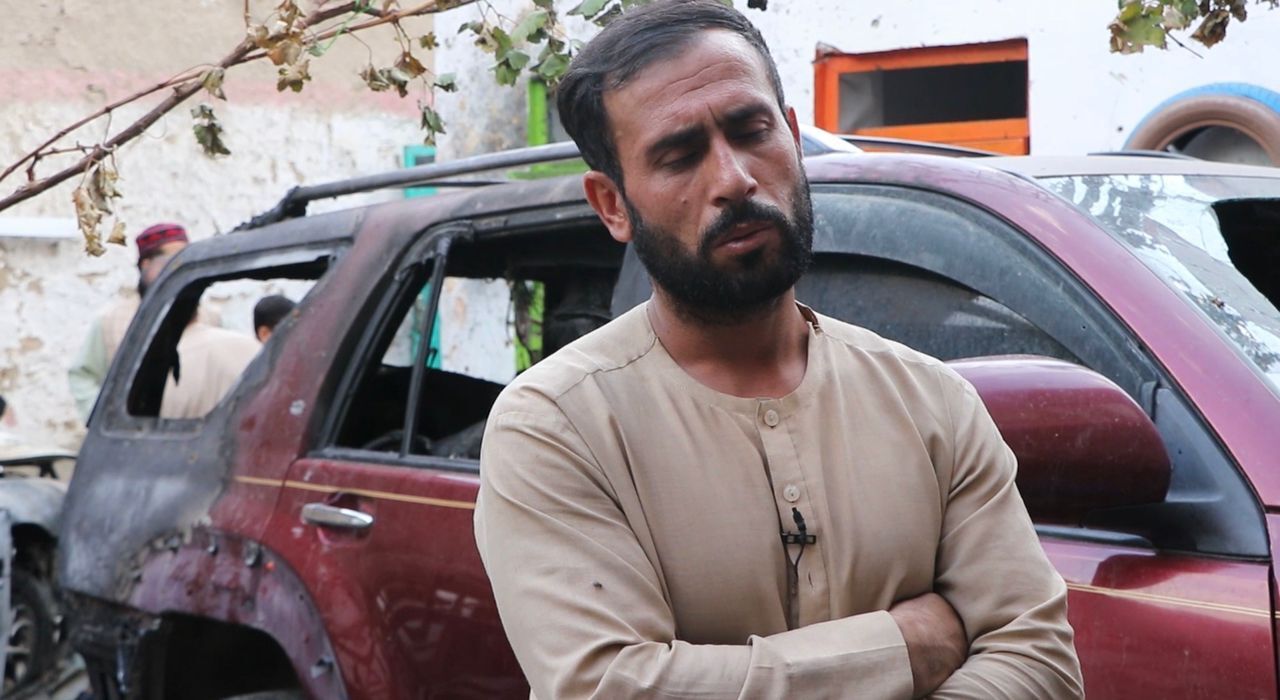
An exasperated and weary, Mr Ramin said, “The US committed a crime. We don’t have any hope for justice. They did several attacks and killed people but there has been no response until now.” “We are asking the international community to know that we are not terrorists - that is all,” he added. After the funeral on Monday, which his colleagues attended, Kwon said.
“The world should know the truth. Zemari was buried in the middle of his children, but honour should be restored to his wife and daughter who survived. ”
Muslim Shirzad contributed to this report
Sign The Independent’s petition urging the UK to take in more refugees from Afghanistan here.



Join our commenting forum
Join thought-provoking conversations, follow other Independent readers and see their replies
Comments